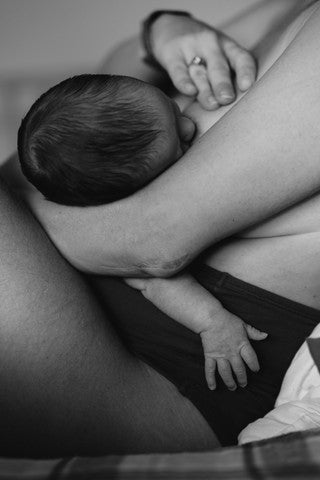Thyroid Diseases And Breastfeeding : What To Know

Thyroid Diseases and Breastfeeding : What to know
The thyroid is a butterfly shaped gland in the base of your neck. Your thyroid creates and produces hormones to different systems throughout your body. When your thyroid is not functioning properly, either making too much or too little, it’s considered a thyroid disease. 1 in 8 women will be affected by a thyroid condition at some point in their lives, so please reach out to the Milky Mama community either on Facebook or Instagram if you want to talk with other mothers who have been diagnosed with different thyroid issues. You’re not alone.
Thyroid disease is diagnosed through blood tests. Once you confirm your pregnancy, ask your doctor to run a lab on your thyroid, and be sure to continue to get it checked throughout pregnancy and at your check up appointment after birth. Speak with your doctor about safe medication to take while you continue breastfeeding. If your thyroid is not producing certain hormones correctly, it can impact your milk production. There is no reason to panic, it’s just good information to have to help you be prepared or know why you may have a dip in your supply.
As we mentioned before, 1 in 8 women will be affected by a thyroid condition at some point in their lives. Some women get diagnosed with a thyroid condition only during pregnancy, while others get diagnosed postpartum. It's important to know it is still safe to breastfeed with thyroid disorders. As always, consult with your healthcare provider regarding specific thyroid medication safety while breastfeeding.
HYPOthyroidism is when you have low thyroid hormone levels and elevated TSH (thyroid-stimulating hormone) levels. If left untreated, this can leave a mother with a decrease in milk supply and might be a reason for the baby's poor weight gain. This is because the TSH can secret into your breastmilk, but at low levels. Mothers who have been properly treated report they have no problems with their milk supply (breastfeeding.asn.au).
Symptoms include:
- Fatigue
- Weight gain
- Sensitive to the cold
- Constipation
- Dry skin
- Hair loss
- Heavy and prolonged menstrual flow
- Low mood
HYPERthyroidism is when you have elevated thyroid hormone levels. Only extremely low levels of thyroid hormones transfer into the breastmilk. It’s still safe to breastfeed. In fact, according to breastfeeding.asn.au, “some women with hyperthyroidism report a large milk supply, but others seem to have difficulty with their let down reflex”.
Symptoms include:
- Fatigue
- Feeling anxious
- Tremors
- Heart palpitations, increased pulse rate
- Sensitive to the heat
- Sweating
- Weight loss
- Diarrhea
- Light or no menstrual flow
Postpartum Thyroid Dysfunction is an autoimmune disease that can pop up in the first year after giving birth. During pregnancy, your body first protects your baby in order for your body to not attack the developing fetus. This causes your immune system to be suppressed. After delivery, your hormones change and your immune system becomes heightened once again. This can result in postpartum thyroiditis.
Symptoms include:
- Sensitive to the cold
- Dry skin
- Lack of energy
- Impaired concentration
- Aches and pains
Some thyroid problems may be mistaken as postpartum depression or other illnesses, so again, please consult with your doctor, advocate for yourself and ask for a blood test to be sure you are being diagnosed correctly.
It is safe to continue to breastfeed if you are experiencing postpartum Please remember to consult with your doctor. Did you find this article helpful? Do you have any more questions for us? Share with us your thoughts or experience in our Facebook group, The Official Milky Mama Lactation Support Group!
Resources
https://www.breastfeeding.asn.au/bfinfo/breastfeeding-and-thyroid-disease
Momotani, N., Yamashita, R., Makino, F., Noh, J. Y., Ishikawa, N., & Ito, K. (2000). Thyroid function in wholly breast-feeding infants whose mothers take high doses of propylthiouracil. Clinical endocrinology, 53(2), 177–181. https://doi.org/10.1046/j.1365-2265.2000.01078.x
https://www.llli.org/breastfeeding-info/breastfeeding-and-thyroidism/








